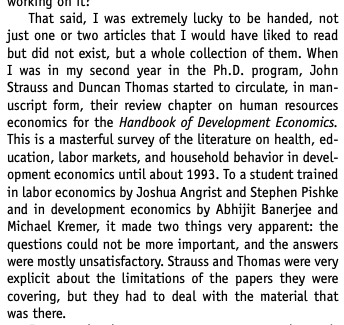This is a wonderful contribution to the scientific community! Effective network/citation-based tools for exploring the literature are absolutely vital, particularly in domains (like interdisciplinary areas) that are still growing and not yet well-structured/paradigmatic.
https://twitter.com/ConnectedPapers/status/1268282414402613249
The system leverages network-based similarity (co-citation, co-reference) instead of raw citations, and uses these metrics to yield a much more maneageble and explorable set of "leads" for each seed paper.
I should add that it builds on the open dataset provided by @SemanticScholar, who also have been adding very useful tools for exploring the citation graph through "meaningful citations" and exploring where the citation was made.
This growing suite of publicly accessible tools make it far easier to employ sophisticated strategies of chaining, which are essential in interdisciplinary and growing domains, where keywords aren't as useful. 

See also new work led by Tom Hope (with @jevinwest, @dsweld , Marti Hearst, and @erichorvitz at @allen_ai, which adds a layer of social (dis)affinity for more diverse exploration medium.com/ai2-blog/explo…
Argh, bad Twitter game, broke the threading. Here's the next bit of the thread:
https://twitter.com/JoelChan86/status/1270094901406023685
• • •
Missing some Tweet in this thread? You can try to
force a refresh












